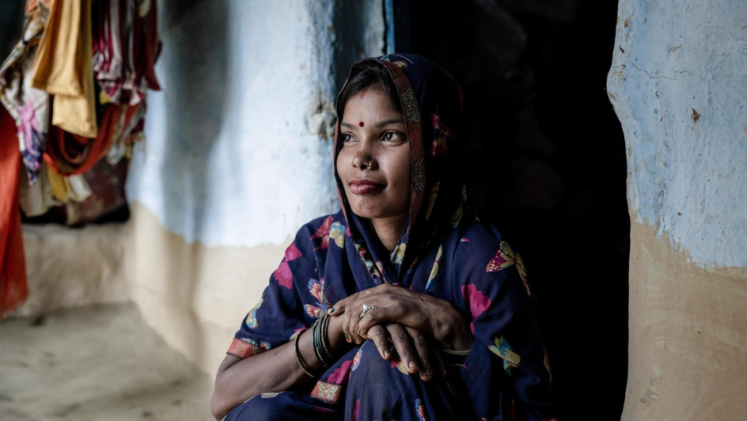What do today’s rural Nepalese women have in common with American women in the 1940s? The answer to what might seem a random question relates to the migration of men. Just as American women stepped up to fill labour shortages during World War II, Nepalese women take over farming activities and prevent rural areas from losing their irrigation systems. This insight comes from a recent study led by former UNU-EHS visiting scientist Dr. Leder and co-authored by UNU-EHS expert Dr. van der Geest.
Men migrating away from rural areas and changing rural economies cause shifting dynamics in rural households, in particular in the Global South. In many locations, the reliance on agriculture decreases as a result of migrants sending money back home. In Nepal, as much as one-third of males in the working population have left the country, highly affecting Nepal’s rural areas and the number of men available to perform farm labour. When men migrate away from their rural homes, the expectation is often that this will adversely affect the use, maintenance and preservation of shared resources, such as irrigation infrastructure.
Among the resources that are seen as crucial in keeping agriculture in Nepal sustainable are so-called Farmer-Managed Irrigation systems (FMIS): systems where farmers are in charge of everything related to irrigation. This includes building, operating and benefiting from the system without much involvement from governments and other external agencies.
The study finds that women increasingly contribute and attend meetings of water user groups, especially women who have had at least one migrant in their household in the past five years. Women involvement in water user groups while men are away depends on various factors, like the presence of other women in the household, their age, class, ethnicity and caste.
Water user groups often engage with water authorities to lobby for the improvement of their irrigation systems, for example to fund repair works to irrigation canals. Unfortunately, functioning systems still do not always allocate proper amounts of water to every person within a group. For example, water use from upstream villages can leave insufficient water supply for villages downstream, resulting in conflict.
However, these issues and community-based resource management turned out to be largely unaffected by the migration of men. In the studied areas, for example, there is no clear change in how people collectively manage resources such as irrigation systems. Women stepped up and got more involved in water groups, highlighting the increasingly important role of women in rural Nepalese communities and economies.
Indicative of how women are gaining confidence in the absence of migrant men, one of the female members of a water user group said: “I was first shaking when talking to men. Now I’m able to express myself more freely. Before men were higher, now when they are not there, I can handle cash”.
More information on the project the study was a part of is available here.


